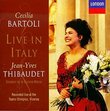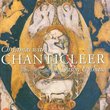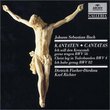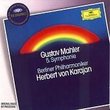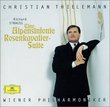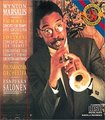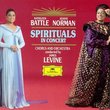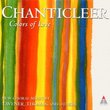Not the Goethe-lieder I expected
Karen Kumley | Salem, Or. USA | 09/30/2003
(4 out of 5 stars)
"I have the greatest possible respect for Thomas Quasthoff. He is probably my current favorite baritone; definitely among my top ten singers of any kind. I confess, though, that I was not pleased with this CD. The songs he chose, he did well, but most of them are not favorites of mine. Of the pieces I expected, seeing the title "Goethe-lieder", I got only Der Erkönig, Ganymed, and Auf dem Wasser zu Singen (which he did a bit fast for my taste). I do not say that this is in any way a bad CD, just suggest that you check the list of songs before purchasing it. There is, alas, no An den Mond, no Wanderers Nachtlied and no Der Fischer."
A great lieder singer in an early phase
Santa Fe Listener | Santa Fe, NM USA | 09/23/2005
(4 out of 5 stars)
"This recital from 1995 includes a few Schubert chestnuts, but the remainder is little-sung material--all but a few songs are very worth hearing. Compared to Quasthoff's latest CDs on DG, however, his earlier phase on RCA shows a great artist still finding his way. The voice is full, rich, and expressive, but it doesn't yet have all the colors that Quaasthoff has learned to bring out. There are occasional flashes of brilliance, moments when Quasthoff opens up and lets his voice fly.
The texts by Goethe will be half the reason to buy this CD for German speakers. But even we non-speakers can be thrilled by Quasthoff's rendition of an early melodrama (D. 126) that sets Mephistopheles' temptation of Gretchen in the cathedral -- it's as gripping as anything the mature Quasthoff has done. Finally, I wouldn't say that the accompanist, Charles Spencer, is top drawer, his style being too direct and blunt. So mark this one down as a very good but not exceptional recital."
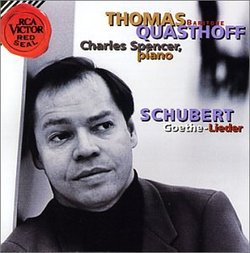

 Track Listings (13) - Disc #1
Track Listings (13) - Disc #1